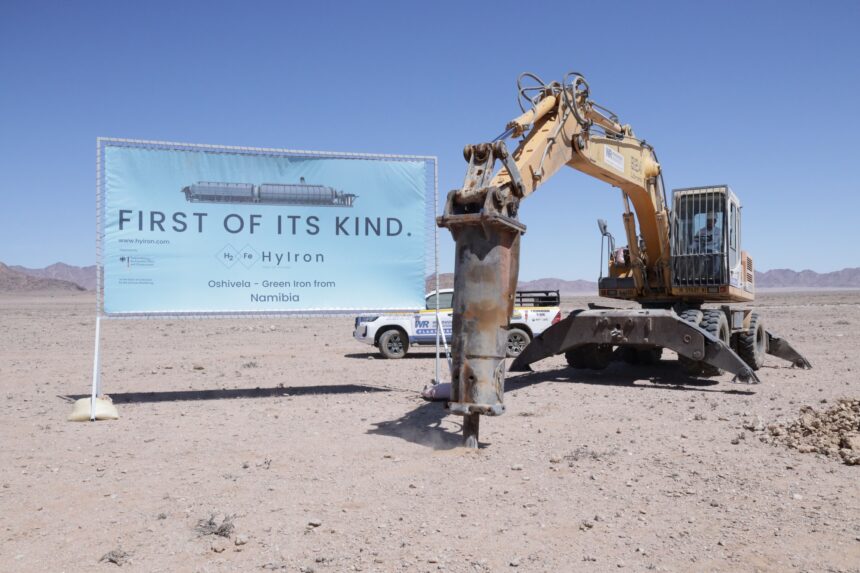In the quest for Namibia to become the first country in the world to industrially produce iron at zero emissions, a N$600 million green iron project, known as HyIron Oshivela, is well on track to kickstart the environmentally-friendly production before end of this year.
“We are roughly at half-time of construction. 12 MW of our solar powerplant have been built. The housing of the electrolyser is at roof level and much of the infrastructure is completed.
We expect to commission the production still within this year,” said HyIron managing director Johannes
Michels.
Traditionally, iron is produced by adding petroleum coke from hard coal in a blast furnace. This releases large amounts of carbon dioxide (CO2).
The Oshivela project consortium consists of three German companies, namely CO2Grab GmbH, TS Elino GmbH and LSF GmbH & Co. KG. Oshivela will be one of the biggest primary production sites of green iron worldwide. Responding to this publication, Michels said as Namibia is blessed with iron deposits in regions like Kunene, the company is considering tapping into those regions. These developments could potentially turn around the socio-economic well-being of the region.
“Namibia has not been known for iron production, especially because the mining of iron ore for blast furnaces and the other traditional iron manufacturing processes require a lot of water, that we do not have. With the HyIron process, this will change because this process does not require a lot of water,” the MD noted.
Global demand for iron is projected to increase rapidly from 1.9 billion tonnes per year (current) to 2.2 billion tonnes by 2030.
Situated in the Erongo region, the project currently employs 160 people, who work directly and indirectly in the construction and process development of the HyIron project. Michels further commended the local government, saying it had supported the project through transparent and efficient public administration that aids largely in the realisation phase of a project.
“The most important point is that trust has been created with investors. Key to creating this trust is the clear definition of values by our government, especially towards our kids and future generations that manifest in the dedication to improve social standards in health and education, and the establishment of the sovereign wealth fund,” the MD added.
He continued that the project can create significant added value within Namibia. This added value is expected to increase tax revenue, improve financing for surrounding industries and suppliers, and should boost development of supply structures within the country.
When asked about benefits to the local community, Michels said several of the construction contracts and sub-contracts have been awarded to surrounding communities.



